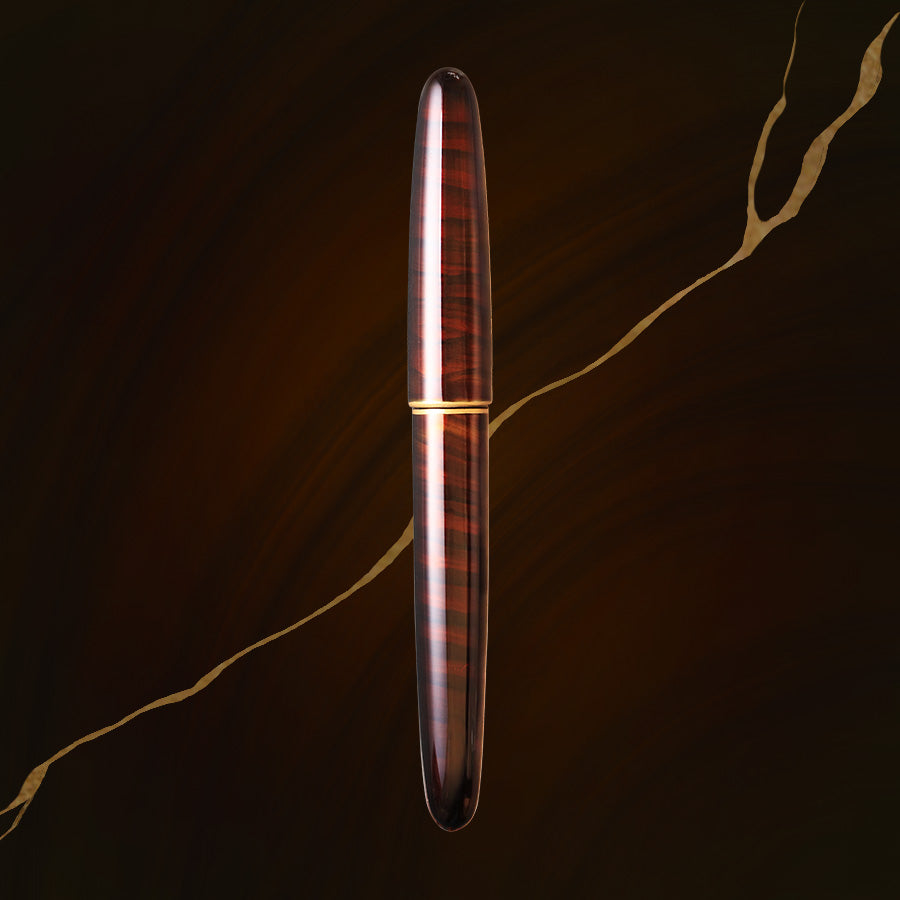Dream Pen Byakudan-nuri
Dream Pen Byakudan-nuri
Couldn't load pickup availability
Description
Description
Important Note: The Byakudan-nuri on each fountain pen is handcrafted one by one. And this process might leave the final surface with an incomplete transition. Our artisans called it Wabi-sabi. It makes your fountain pen a unique piece of art that does not resemble any others. *Please do not mistake this with defects.*



What is Byakudan-nuri?
白檀 (Byakudan) translates as Sandalwood. It is said that this technique is named Byakudan-nuri because it resembled the amber color of Sandalwood.
A complicated process along with a meticulous handcraft is required to create a Byakudan-nuri artwork.
The first step is to apply a coating layer as a base, then an immediate Urushi layer is painted on top and swiftly, but surely sharpened smooth.
Afterward, paper-thin gold or silver foil is pressed onto the surface of the object and then coated with a layer of Suki Urushi (transparent Urushi lacquer).
After it dries, other transparent candy-colored Urushi layers will be applied.
The last, but also crucial step, is to polish the object until it's glossy.
To make the Urushi stand out on a pen body, each Urushi layer is coated in a spiral pattern. Therefore, the Byakudan-nuri looks like it is floating on the surface of the pen with a smooth transition of the brush lines throughout the pen.
This technique has not been seen on many writing instruments, which our fountain pen is proud to present.
Kintsugi art
In addition to the fastidious craftsman's work of Byakudan-nuri, the Kintsugi art was simultaneously applied to the edge of the pen. This is another aspect of the Japanese aesthetic sense where unnoticeable subtle elements are also the vital ones that aids to the total extraordinary craftsmanship.
Kintsugi 金継ぎ (or golden joinery) refers to the Japanese art of using Urushi with a metal powder such as gold and silver to mend broken pottery. A beauty in which emphasizes the beauty of 'scars', or the 'perfect imperfections'. On the edge of our fountain pen where the Byakudan coating ends, the Kintsugi is applied. It works as a connector of the whole pen body surface even though the cap, the grip, and the barrel are completely separate parts.

Specifications
Material & art: Ebonite, Urushi
Filling mechanism: Converter or Cartridge (European International Standard)
Nib: #6 Jowo stainless steel, Wancher 18K gold
Feed: Plastic, ebonite black, ebonite red
Compact air-tight cap: Preven dried-out ink problem
Size & Shape

Packaging

Share

























